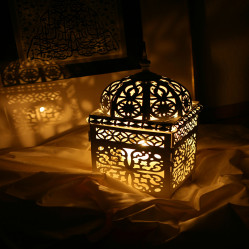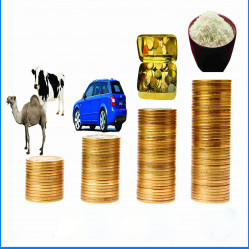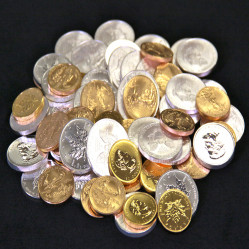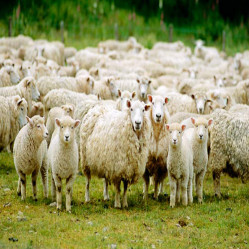Fasting
Fasting is not an act that is meant to torture you. In fact, it is one of the most meaningful forms of worship that Allah has asked us to perform whenever we can. It is the easiest way to see the world differently.


Fasting is not an act that is meant to torture you. In fact, it is one of the most meaningful forms of worship that Allah has asked us to perform whenever we can. It is the easiest way to see the world differently.

Ramadan is a lunar month so its start and end are confirmed by the sighting of the new moon. It requires two acceptable Muslims testifying to the fact, but if no one sees it; Muslims must complete the precedent month.

What is more important than fasting is forming the intention. Muslims are obliged to form the intention and it must be formed before dawn. If the fasting is voluntary it is acceptable to form it during the day.

Allah the most merciful has exempted some people from fasting in Ramadan. Some cases like; sick, old people, or travelers. And they have to make up for those days later and give compensation to the poor and needy.

Fasting is more than just boycotting food and drinks. There are a lot of hidden messages behind fasting. It is beneficial form of worship that doesn't only redeem your body but also your soul and mind.

There are some acts that invalidate Muslims fasting and they must be aware of. These acts include; to eat, drink, having sexual intercourse, forcing oneself to vomit, cupping, or fasting during menstruation.

Itikaf is a sunnah from our prophet (pbuh). It is a term for dedicating oneself to worship Allah by staying in the mosque for the last 10 days of Ramadan. Muslims stay up every night eager to attempt the Night of Power.

Islam in general urges Muslims to avoid using inappropriate language especially during the holy month. In Ramadan it is essential to tell no lies, avoid cursing, not to fight, and show the real essence of Islam.

Zakat is one of the 5 pillars of Islam. It is a charity duty imposed on a certain threshold of excess money and paid to the poor. It is the most important pillar after testifying that there is no deity than God and prayer.

If a Muslim denies zakat and he is fully aware of Islamic rules and has access to scholars he is considered as an apostate. Only those who are new to Islam or have valid reason are not deemed to be unbelievers.

Withholding zakat is a grave sin but it does not mean that the person is an unbeliever. They are liable to punishment and zakat could be taken from them by force until they submit to God’s commands.

Zakat is paid on 5 types of properties; cattle, gold and silver, commercial goods, grains and fruits and mineral resources. Each has its conditions. Those who neglect paying it are promised a painful suffering.

Zakat has numerous social effects. It erases zakat payer sins, purifies his heart from any greed and removes any traces of miserliness. It also spreads a spirit of mutual care and love within the Muslim community.

Zakat has a huge positive economic effect on the society. It helps solving poor and needy problems. It plays a significant role in wealth and resources redistribution and encourages better productivity.

Zakat must be paid on gold and silver. An amount of 2.5 percent is required to be paid but there are some conditions that should be met like; ownership of the threshold, full ownership and the turn of a year.

Scholars agree that Zakat is due on jewelry kept as savings. But they differ in their view on jewelry kept for permissible use. As a conclusion, zakat is not due on usable jewelry if it is within reasonable limits.

Commercial commodities refer to everything a Muslim own and uses for trade. They should be owned by personal action for the intention of trading and their value must be equal or to exceed Zakat threshold.

Zakat is obligatory on what earth produces; grains which are fully grown, can be eaten, stored and meeting the threshold. Rikaz which is gold or silver and minerals which is agreed to be anything coming from earth.

Cattle include camels, cows and bovine animals are objects deserving zakat to be paid on certain conditions; the threshold should be met, to be owned for more than a year, grazing period and not used for living.

Zakat is for 8 classes of people; the poor, the needy , the administrative workers , those whose hearts are to be won over, freeing people in bondage, paying debts , travellers in need and for further god causes.
Sorry, You must be logged in. Use link below to log in or sign up Sign in
